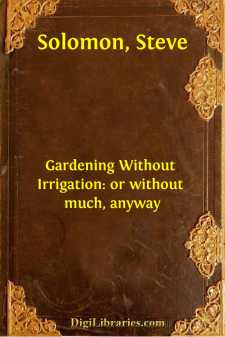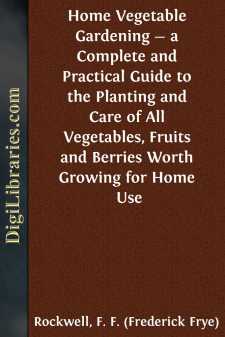Categories
- Antiques & Collectibles 13
- Architecture 36
- Art 48
- Bibles 22
- Biography & Autobiography 815
- Body, Mind & Spirit 144
- Business & Economics 28
- Children's Books 18
- Children's Fiction 14
- Computers 4
- Cooking 94
- Crafts & Hobbies 4
- Drama 346
- Education 58
- Family & Relationships 59
- Fiction 11833
- Games 19
- Gardening 17
- Health & Fitness 34
- History 1378
- House & Home 1
- Humor 147
- Juvenile Fiction 1873
- Juvenile Nonfiction 202
- Language Arts & Disciplines 89
- Law 16
- Literary Collections 686
- Literary Criticism 179
- Mathematics 13
- Medical 41
- Music 40
- Nature 179
- Non-Classifiable 1768
- Performing Arts 7
- Periodicals 1453
- Philosophy 65
- Photography 2
- Poetry 896
- Political Science 203
- Psychology 44
- Reference 154
- Religion 515
- Science 126
- Self-Help 85
- Social Science 82
- Sports & Recreation 34
- Study Aids 3
- Technology & Engineering 59
- Transportation 23
- Travel 463
- True Crime 29
Our website is made possible by displaying online advertisements to our visitors.
Please consider supporting us by disabling your ad blocker.
Gardening Without Irrigation: or without much, anyway
by: Steve Solomon
Categories:
Description:
Excerpt
First, you should know why a maritime Northwest raised-bed gardener named Steve Solomon became worried about his dependence on irrigation.
I'm from Michigan. I moved to Lorane, Oregon, in April 1978 and homesteaded on 5 acres in what I thought at the time was a cool, showery green valley of liquid sunshine and rainbows. I intended to put in a big garden and grow as much of my own food as possible.
Two months later, in June, just as my garden began needing water, my so-called 15-gallon-per-minute well began to falter, yielding less and less with each passing week. By August it delivered about 3 gallons per minute. Fortunately, I wasn't faced with a completely dry well or one that had shrunk to below 1 gallon per minute, as I soon discovered many of my neighbors were cursed with. Three gallons per minute won't supply a fan nozzle or even a common impulse sprinkler, but I could still sustain my big raised-bed garden by watering all night, five or six nights a week, with a single, 2-1/2 gallon-per-minute sprinkler that I moved from place to place.
I had repeatedly read that gardening in raised beds was the most productive vegetable growing method, required the least work, and was the most water-efficient system ever known. So, without adequate irrigation, I would have concluded that food self-sufficiency on my homestead was not possible. In late September of that first year, I could still run that single sprinkler. What a relief not to have invested every last cent in land that couldn't feed us.
For many succeeding years at Lorane, I raised lots of organically grown food on densely planted raised beds, but the realities of being a country gardener continued to remind me of how tenuous my irrigation supply actually was. We country folks have to be self-reliant: I am my own sanitation department, I maintain my own 800-foot-long driveway, the septic system puts me in the sewage business. A long, long response time to my 911 call means I'm my own self-defense force. And I'm my own water department.
Without regular and heavy watering during high summer, dense stands of vegetables become stunted in a matter of days. Pump failure has brought my raised-bed garden close to that several times. Before my frantic efforts got the water flowing again, I could feel the stressed-out garden screaming like a hungry baby.
As I came to understand our climate, I began to wonder about complete food self-sufficiency. How did the early pioneers irrigate their vegetables? There probably aren't more than a thousand homestead sites in the entire maritime Northwest with gravity water. Hand pumping into hand-carried buckets is impractical and extremely tedious. Wind-powered pumps are expensive and have severe limits.
The combination of dependably rainless summers, the realities of self-sufficient living, and my homestead's poor well turned out to be an opportunity. For I continued wondering about gardens and water, and discovered a method for growing a lush, productive vegetable garden on deep soil with little or no irrigation, in a climate that reliably provides 8 to 12 virtually dry weeks every summer.
Gardening with Less Irrigation
Being a garden writer, I was on the receiving end of quite a bit of local lore....













